The U.S. announced last month that it will no longer share information with Russia on European-based conventional weapons and troops as required by the Conventional Forces in Europe treaty. In an email interview, Jeffrey D. McCausland, a distinguished visiting professor of research at the Strategic Studies Institute of the U.S. Army War College, discussed the Conventional Forces in Europe treaty. WPR: What is the intent and purpose of the Conventional Forces in Europe treaty, and what is the nature of the dispute between Russia and NATO over the treaty? Jeffrey D. McCausland: The Treaty on Conventional Armed forces in Europe […]
Diplomacy & Politics Archive
Free Newsletter
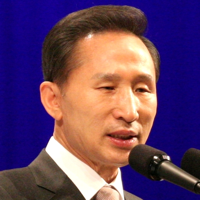
Kim Jong Il’s death and apparent replacement by his 20-something son, Kim Jong Un, has introduced a potentially potent new variable into South Korean politics at a time when the South’s traditional political parties are dissolving. This vulnerability may tempt the North to engage in aggressive provocation, while making it difficult for the South to respond cohesively. For the time being, both capitals are likely to maintain the status quo. South Korea’s policy toward the North is set by its executive, composed of South Korean President Lee Myung-bak and Prime Minister Kim Hwang-sik. Though the South Korean media often refers […]

Another round of protests is scheduled for Russia on Saturday, raising the question of whether a “color revolution,” this one characterized by the demonstrators’ white ribbons, capable of toppling the government is in the cards. Media attention invariably focuses on mass demonstrations, banner-waving crowds and Twitter-savvy organizers, yet what happens behind the scenes is usually much more important to the outcome of such movements. Protests are not enough, and for all the color revolutions that succeeded over the past decade — in Serbia, Georgia and Ukraine — there were also some glaring failures, as in Azerbaijan and Belarus. While Russian […]
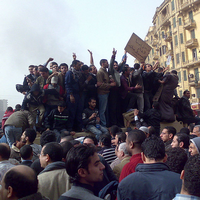
It’s too soon to know how the events of this fast-fading year will ultimately reshape our world, but the upheaval we witnessed in 2011 will most assuredly keep future historians ponderously occupied. Indeed, it was a year of uprooting, breaking up and tilling the geopolitical soil — a year that will have mattered in many ways, many of which we don’t yet fully understand, but that clearly represent a turning point. Ten events in particular reshaped the global landscape in 2011. The Arab Uprisings. The spark lit by Tunisian food vendor Mohammed Bouazizi at the end of 2010 set much […]
Canada sent forces from the Canadian Special Operations Regiment earlier this month to train Mali’s military to fight against al-Qaida in the Islamic Maghreb. In an email interview, Joel Sokolsky, principal and professor of political science at the Royal Military College of Canada, discussed Canada’s overseas military deployments. WPR: In addition to Iraq and Afghanistan, where has the Canadian military deployed over the past decade, and how have its deployments impacted both the Canadian armed forces and the civilian leadership? Joel Sokolsky: Notwithstanding a Canada First Defense Strategy that suggested a focus on the direct defense of Canada and domestic […]
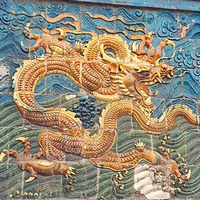
BEIJING — With multiple indicators pointing to a tangible slowdown in the Chinese economy, continuing signals from senior leaders that the country is entering a new period of more-controlled economic growth, and significant reforms afoot, there is growing evidence that China is entering a new phase in its economic development. But deterioration in the global macroeconomic environment has created a new and less benign backdrop for this change, significantly limiting policy options for reform and reducing the margin for error. With domestic systemic financial stress and social tension also both ticking upward, China may be finally forced to confront the […]
Over the past year, maritime territorial disputes between China and Japan as well as between China and various Southeast Asian states have triggered several incidents at sea, raising tensions in the region and beyond. So last week’s stabbing death of a South Korean Coast Guard officer at the hands of a Chinese fishing boat captain intercepted in South Korean waters understandably raised concerns that a similar crisis might be at hand. Instead, South Korea responded by calling attention to another maritime security challenge facing the region, that of illegal fishing, and invited Japan and China to jumpstart a dialogue mechanism […]
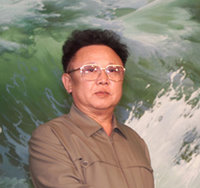
Kim Jong Il is dead, and the world is wondering what to do about it. The task of leading North Korea has fallen to an inexperienced 27-year-old without a major constituency, even as the threat of regime collapse worries both friends and enemies of the largely isolated nation. What should Washington, Beijing, Seoul and Tokyo do in order to avoid a crisis? Some observers are arguing that this represents an opportunity for the United States to push hard against the DPRK, hopefully causing it to topple. This would be a mistake; the DPRK is likely not only to survive such […]

Europe’s unresolved debt crisis has been the major problem facing the global economy of late. Beyond taking center stage for economic policymakers, Europe’s problems led investors to seek refuge in the safe haven of U.S. debt, dubiously anointed the “least dirty shirt” of the global economic landscape. As investors pulled out of faster-growing economies, the capital flight drove down the value of those countries’ currencies, many of which had been bid up at the beginning of 2011. While the problem of overvalued currencies may have receded over the summer, the underlying issue of currency manipulation still threatens the global economy. […]
Russia presented a draft resolution to the United Nations Security Council on Thursday that condemned the violence in Syria after nine months of protests and 5,000 deaths in that country. The proposal, which demands that “all parties in Syria immediately stop any violence irrespective of where it comes from,” followed months of deadlock over whether and how the Security Council should respond to the ongoing crisis. But while the draft resolution may represent a step closer to compromise, the debate over what comes next will continue, says Richard Gowan, an associate director at New York University’s Center on International Cooperation. […]
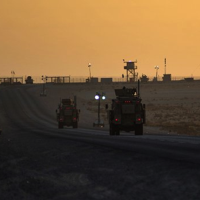
The Iraq War began with “shock and awe.” It ended with quiet dignity, with battle flags coming down from their standards, with a free but fragile Iraq walking into the unknown and a bloodied but unbowed U.S. military saluting its commander-in-chief and marching home. Much about America’s war in Iraq was remarkable: the rapid collapse of Saddam Hussein’s regime, the surprising absence of WMDs, the unexpectedly high economic and human costs, the patience of the American people — eight years is a long war for this nation’s short attention span — the ferocity of the postwar occupation, the sacrifice and […]

Two great uncertainties define the current succession process in North Korea. First, will the new leadership pursue aggressive or moderate foreign policies? Second, how should foreign countries respond to the new situation in the Democratic People’s Republic of Korea (DPRK)? Given how little we know about North Korea’s internal politics, the first question is difficult to address. Although some indicators of future behavior should emerge in coming weeks, the succession process could take years to evolve. The North Korean regime may continue to muddle through, remaining a military threat to South Korea — and other states — and representing a […]
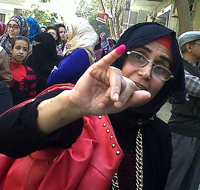
Will the Arab Spring finally end the European Union’s lethargic approach to the southern Mediterranean and lead to more serious support for democratization? Don’t hold your breath. There are three key reasons why “business as usual” with only cosmetic changes is likely to remain the norm. First and foremost is the fact that Europe is in deep economic and financial crisis. With growing discord between France, Britain and Germany, not only the future of the euro but the very foundations of the European Union are at stake. Consumed by its own existential crisis, a serious rethinking of foreign policy is […]
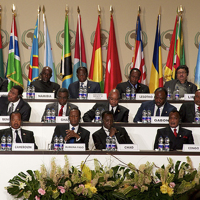
After a groundswell of anti-government protests enveloped many corners of North Africa a year ago, observers around the world began to wonder how far this democratic contagion would spread. In particular, many wondered whether northern Africa would inspire its neighbors in sub-Saharan Africa, which share many of the same demographic characteristics found in the Middle East and North Africa (MENA), including a large percentage of unemployed young people, high food prices and years of oppression and unrealized opportunity at the hand of often-brutal dictators. At the time, political commentators in several corners of Africa seemed optimistic that the Arab Spring […]
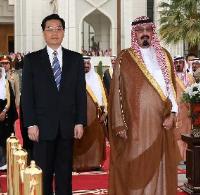
The “Arab Spring” that started early in 2011 has shaken the entire Middle East. Rulers who had reigned for decades have been toppled; power has changed hands; and the few regimes that are resisting changes are still undergoing tumultuous unrest. Beijing has been forced to face the rapidly changing developments and make adjustments both to monitor the potential repercussions at home and to protect its growing commercial interests in the region. Beijing has responded to the events in the Middle East with tentative policy adjustments aimed at securing domestic stability and minimizing economic losses resulting from the unforseen and sudden […]
